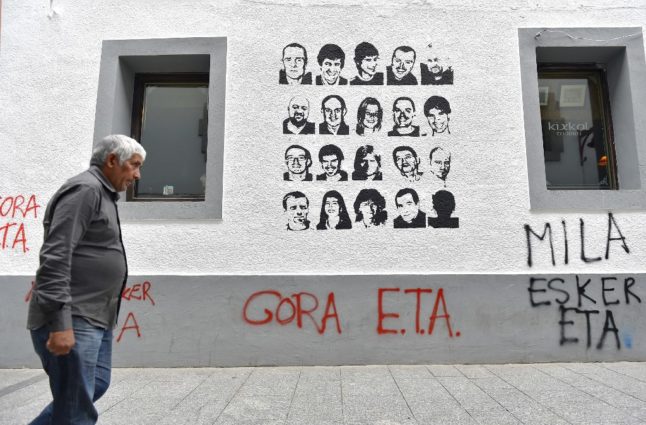There has been shock and condemnation across Spain after EH Bildu, a Basque political party, presented candidate lists for upcoming local and regional elections that included 44 people convicted of belonging to or collaborating with the Basque separatist terror group ETA.
Among them, seven were convicted for murder, and each of the 44 has served a prison sentence. EH Bildu is a Basque nationalist, pro-separatist political party active in Basque Country, Navarre, and Burgos.
Among the candidates are former leaders of Batasuna, a separatist party banned in 2003 after a court found they were financing ETA activity, including Adolfo Araiz, who is seeking election to the Navarre regional parliament, and the former president of Sortu, Hasier Arraiz, who is running for local council in Vitoria and was sentenced as recently as 2016 to two years in prison for involvement in a terrorist organisation.
Seven candidates were convicted for their roles in several murders committed by ETA between 1978 and 2001. ETA was responsible for the killing of at least 853 people between 1968 and 2010.
The list of candidates with ‘delitos de sangre‘ (blood crimes) includes Agustín Muiños Díaz, known as Tinin, who is running for Mayor in Legutio in Álava. In 1985 Dias was sentenced to 29 years in prison for the 1983 murder of José Antonio Julián Bayano, as well as Arriaga Martínez, running for office in Berrioplano (Navarra) who was sentenced to 29 years in prison in 1989 for the murder of Jesús Alcocer Jiménez in 1984.
READ ALSO: How a remarkable novel is helping Spain come to terms with the Basque Country’s violent past
In Bizkaia, Asier Uribarri Benito appears on the list for the Maruri-Jatabe City Council. He was sentenced to 16 years in prison as an accomplice in the 1997 murder of Guardia Civil agent José Manuel García Fernández.
“Some even go on the lists with their name and the nickname they had in ETA, as is the case of Tinin and José Antonio Torre Altonaga aka Medius,” Covite adds in an informative note.
Former ETA members, particularly their proximity to and involvement with EH Bildu, has long been controversial in Spanish politics. For some time, though not for all people, the political logic has been that bringing Basque separatist forces into the political fold was, though not ideal, the least worst option and a way to maintain peace.
Former Spanish Prime Minister José María Aznar defended this position in 1999 when the group was still active: “Taking possession of a seat is always preferable to taking up arms. This is the short, clear and democratic question,” he said
The Prime Minister who presided over the eventual end of ETA’s deadly campaign, José Luis Rodríguez Zapatero, has recalled that “we said at the time that if they gave up terror they would have a place in the institutions, and I believe that this democratic promise must be kept.”
Condemnation
That’s not to say that all in the country see the lists in such measured terms.
The controversial electoral lists have sparked shock around Spain, with many different groups condemning EH Bildu’s decision to include convicted terrorists in electoral politics.
Victims group El Colectivo de Víctimas del Terrorismo (Covite) has denounced the candidates, who appear on 300 electoral lists at various level, and suggest it is “a danger to democracy” that people with “criminal and terrorist history” are running for public office.
“No dignified democracy, no state with the rule of law aware of the significance of its victims of terrorism would allow the revolving doors of terrorists to be in politics,” said Consuelo Ordóñez, Covite’s President.
“Some even appear the lists with their name and the nicknames they had in ETA, as is the case of ‘Tinin’ and José Antonio Torre Altonaga ‘Medius’,” she added.
EH Bildu response
EH Bildu’s candidate for the Navarre presidency, Laura Aznal, has defended the controversial candidate lists, suggesting that they “have passed through the electoral board without any problems.”
Pre-election political point scoring
The scandal has also caused ripples at the national political level. Main opposition party Partido Popular’s Congressional spokeswoman, Cuca Gamarra, has used the electoral lists to attack Pedro Sánchez ahead of the upcoming election. Holding up a newspaper with faces of convicted ETA members, she said: “This is the electoral poster of the socialist party [PSOE].”
Pedro Sánchez’s PSOE-led government has at times relied on votes from EH Bildu to pass legislation in the Spanish parliament.



 Please whitelist us to continue reading.
Please whitelist us to continue reading.
Member comments